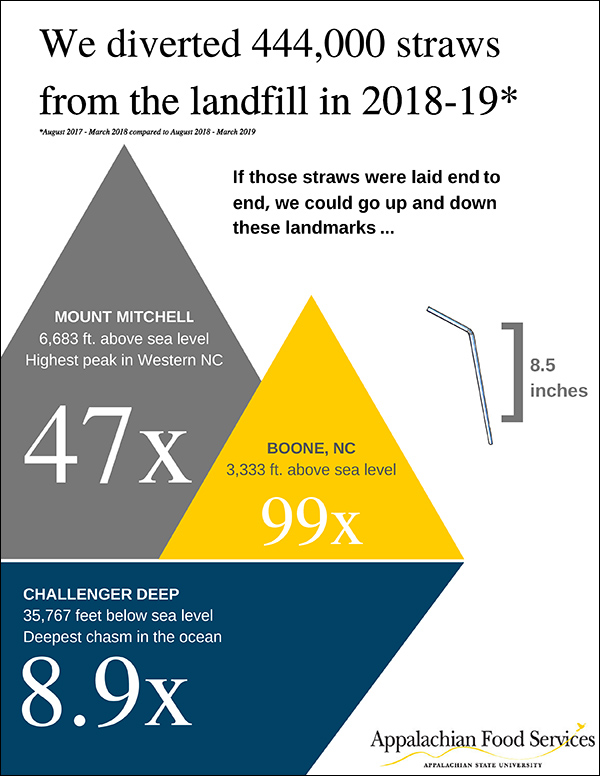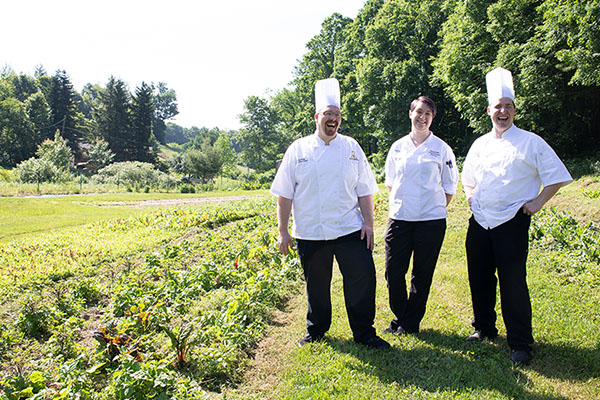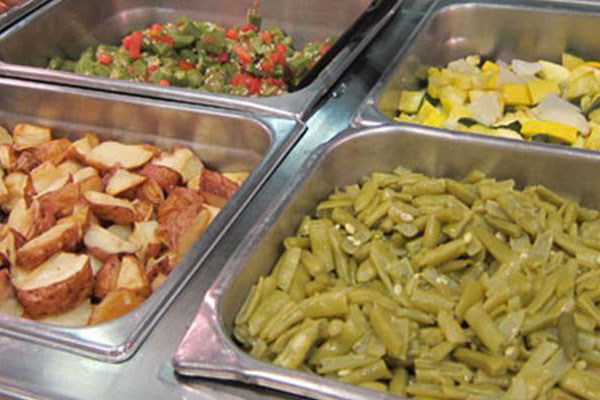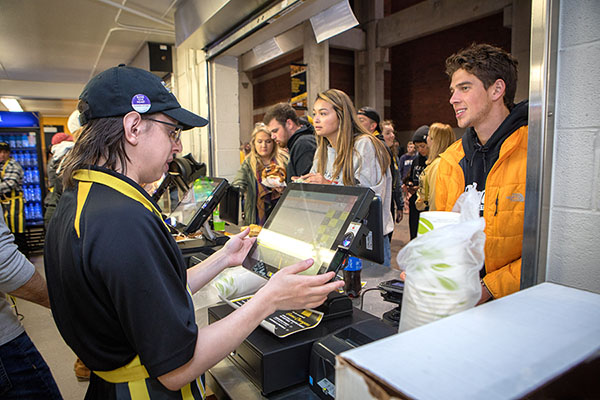BOONE, N.C. — In the 2018–19 academic year (August 2018–March), Appalachian State University Food Services, with the help of campus partners and eco-conscious students, faculty and staff, reduced single-use plastic straw usage on campus by 444,000 straws, as compared to the 2017–18 school year (August 2017–March 2018). These straws, if laid end to end, would stretch nearly 60 miles — the equivalent of 47 hikes to the top of Mount Mitchell, the highest point east of the Mississippi River.
This decrease in overall usage is a part of the university’s Straws by Request initiative, in which plastic straws are given to diners only upon request.
In fall 2018, Food Services replaced the plastic straws offered by the university’s nonfranchise dining units with paper and corn plastic straws that are commercially compostable. As a result, 134,400 compostable straws were used from August 2018 to March.
In order to make the initiative a success, Food Services partnered with the Office of Sustainability to create advertising programs and reminded diners of reusable straw options that are sold at the University Bookstore.
Appalachian’s campus conversation around single-use plastic straws took off last year, when Food Services sponsored a viewing of and discussion about the movie “Straws,” which explores the environmental impact of single-use plastic straws.
What do you think?
Share your feedback on this story.
About Campus Dining
Campus Dining is owned and operated by Appalachian State University and offers dining services tailored to the campus community’s specific needs. With three dining facilities and daily catering events, Campus Dining provides opportunities for nourishment and also building and fostering relationships over shared meals and experiences. Campus Dining is committed to serving the Appalachian Community using sustainable practices such as local sourcing and contributing to campus composting and a constantly evolving partnership with the Office of Sustainability. Learn more at https://dining.appstate.edu.
About Sustainability and Energy Management at App State
Appalachian State University’s leadership in sustainability is known nationally. The university’s holistic, three-branched approach considers sustainability economically, environmentally and equitably in relationship to the planet’s co-inhabitants. The university is an active steward of the state’s interconnected financial, cultural and natural resources and challenges students and others think critically and creatively about sustainability and what it means from the smallest individual action to the most broad-based applications. The university offers both undergraduate and graduate academic degree programs that focus on sustainability. In addition, 100 percent of Appalachian’s academic departments offer at least one sustainability course or course that includes sustainability, and all students graduate from programs that have adopted at least one sustainability learning outcome. Learn more at https://appstate.edu/sustainability.
About Appalachian State University
As a premier public institution, Appalachian State University prepares students to lead purposeful lives. App State is one of 17 campuses in the University of North Carolina System, with a national reputation for innovative teaching and opening access to a high-quality, cost-effective education. The university enrolls more than 21,000 students, has a low student-to-faculty ratio and offers more than 150 undergraduate and 80 graduate majors at its Boone and Hickory campuses and through App State Online. Learn more at https://www.appstate.edu.
















